On September 17, 2025, at the 45th session of the World Heritage Committee in Riyadh, the capital of Saudi Arabia, the “Pu'er Jingmai Mountain Ancient Tea Forest Cultural Landscape” officially became China's 57th World Heritage Site.
It is also the world's first Tea culture World Heritage site.
The number of World Heritage sites in Yunnan has increased to six (the previous five were the Old Town of Lijiang, the Three Parallel Rivers Protected Area, the Shilin Karst, the Chengjiang Fossil Site, and the Red River Hani Rice Terraces Cultural Landscape), second only to Beijing's seven, ranking second among provincial-level administrative regions in China.
Prior to this, among the three globally popular beverages—tea, wine, and coffee—only tea did not have a World Heritage site dedicated to it.
The great significance of the successful inscription of the “Pu'er Jingmai Mountain Ancient Tea Forest Cultural Landscape” lies in filling the gap for tea-related World Heritage sites in the World Heritage List. In other words, it is the world's first World Cultural Heritage site with “tea” as its theme.
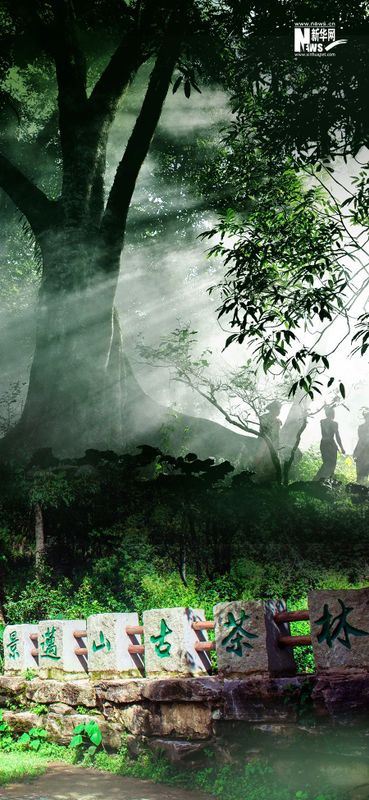
Introduction to the “Pu'er Jingmai Mountain Ancient Tea Forest Cultural Landscape”
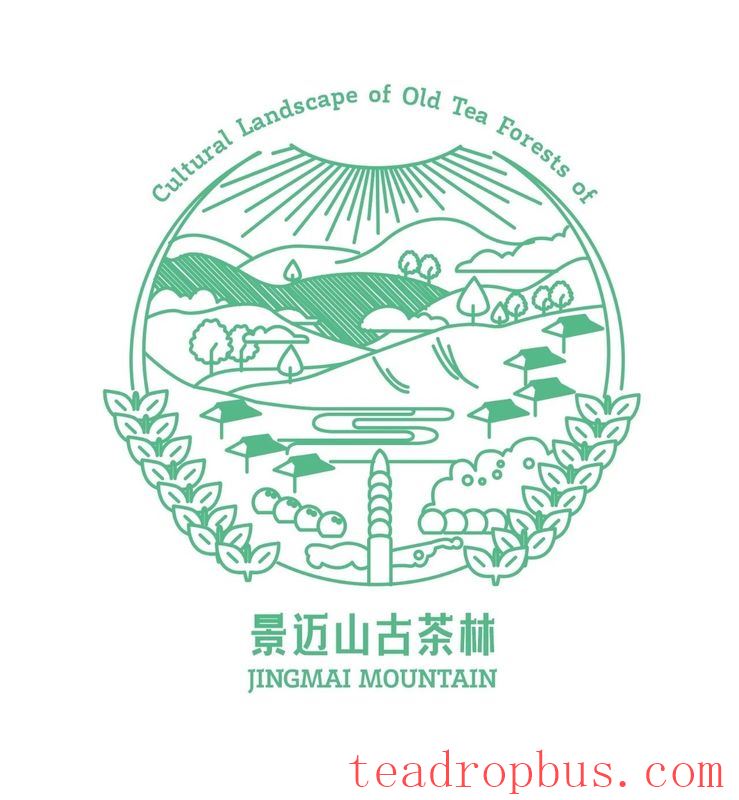
Officially Published Logo of the “Jingmai Mountain Ancient Tea Forest”
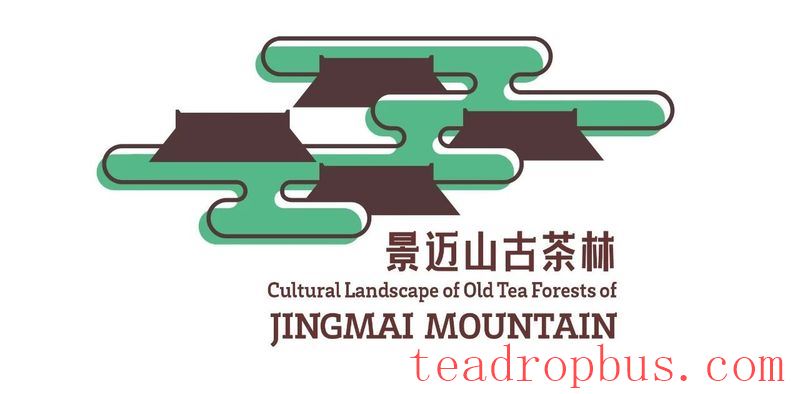
Management Logo for the “Jingmai Mountain Ancient Tea Forest”
Jingmai Mountain is one of the famous “Six Great” Pu'er tea mountains and has nearly 2,000 years of tea cultivation history. It has an area of 28,000 mu of ancient tea forest and over 3.2 million ancient tea trees, making it the largest, best-preserved, and oldest known artificial tea plantation, truly a living fossil colony of tea plants.
The “Pu'er Jingmai Mountain Ancient Tea Forest Cultural Landscape” heritage site is located in the Huimin Town of Lancang County, Pu'er City, Yunnan Province, 237 kilometers from the city center of Pu'er and 70 kilometers from the county seat of Lancang. The total area of the heritage site is 190.96 square kilometers, including 71.68 square kilometers in the core zone and 119.28 square kilometers in the buffer zone.
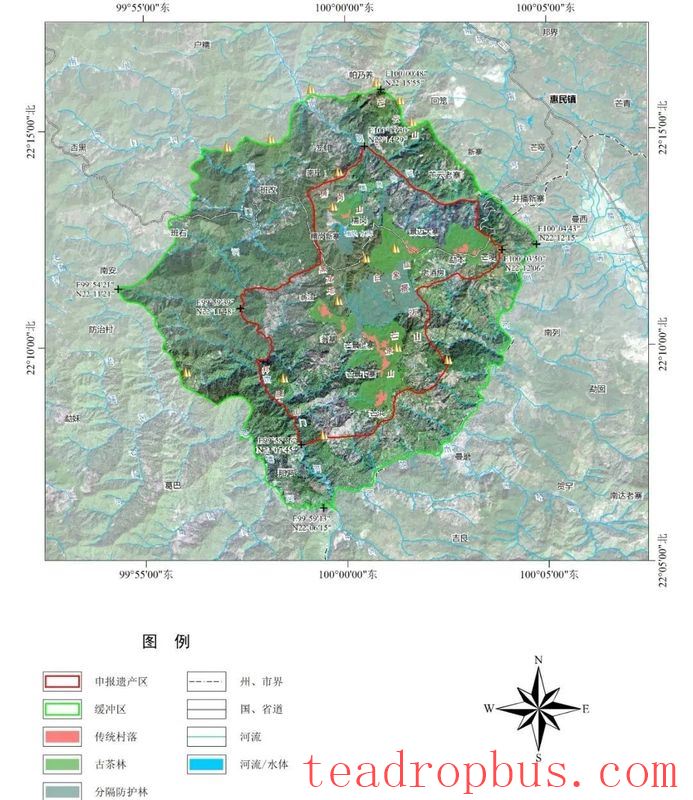
The core zone includes five vast ancient tea forests, nine traditional villages distributed within them, and three protective forests between the ancient tea forests.
The traditional villages included as elements of the heritage are four Dai ethnic villages—Jingmai Daizhai, Mengben, Manggeng, and Nuogang Laozhai—and five Bulang ethnic villages—Mangjing Shangzhai, Mangjing Xiazhai, Manghong, Wengji, and Wengwa.
The Han Chinese village of Laojiufang, famous for its liquor brewing, is also within the heritage site but is not included as an element of the heritage. Within the buffer zone are one Water Dai village—Banggai, one Wa ethnic village—Nanzuo, and three Hani ethnic villages—Longbang, Nana, and Mangyun Laozhai.
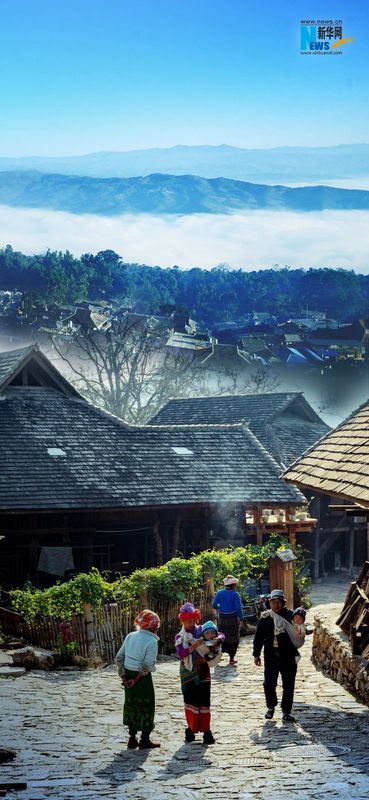
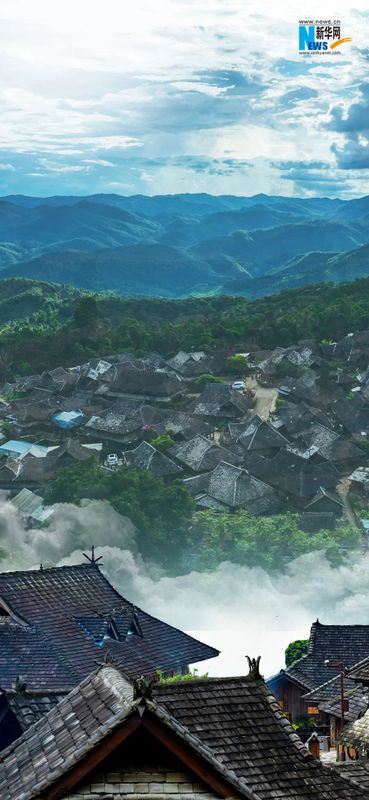
The Journey Toward World Heritage Inscription for Jingmai Mountain
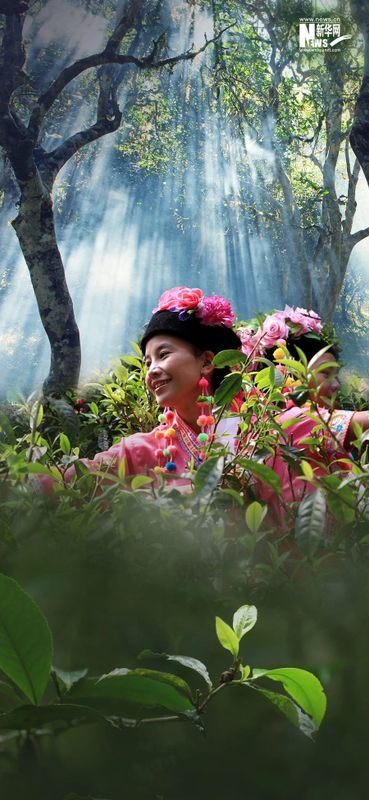
In November 2012, the Ancient Tea Plantations of Jingmai Mountain in Pu'er was successfully included in the “China Tentative List of World Cultural Heritage.”
In January 2013, the Ancient Tea Plantations of Jingmai Mountain in Pu'er entered the “Tentative List” of the World Heritage Centre (WHC).
In May 2013, the ancient tea forest of Jingmai was announced by the State Council as one of the seventh batch of National Key Cultural Relics Protection Units.
In October 2025, under the proposal and support of the National Cultural Heritage Administration, the town of Huimin in Lancang County, Yunnan Province, hosted an “International Symposium on the Conservation and Sustainable Development of Tea Cultural Landscapes.” More than 20 experts from nine countries attended and spoke, engaging in extensive discussions on the theme of “tea cultural landscapes.” Following the symposium, the “Proceedings of the International Symposium on the Research, Conservation, and Sustainable Development of Tea Cultural Landscapes” was published.
In January 2025, the State Council formally agreed that the “Jingmai Mountain Ancient Tea Forest Cultural Landscape” would be China's sole nomination for World Heritage status in 2025.
On January 27, 2025, after review by the National Cultural Heritage Administration, the nomination document for Jingmai Mountain was delivered on time to the World Heritage Centre located at the headquarters of UNESCO in Paris.
In May 2025, the nomination document for Jingmai Mountain passed the format and content review by ICOMOS (International Council on Monuments and Sites), the advisory body for World Cultural Heritage.
In November 2025, the “Thematic Study on Asian Tea Landscapes,” edited by ICOMOS, was released, with participation in the report's preparation by the Chinese National Committee of ICOMOS.
From September 6 to 11, 2025, Marlon Martin, an expert from the Philippines and head of the organization to save the Ifugao Rice Terraces, completed a field evaluation of Jingmai Mountain. Due to the pandemic, the entire evaluation was conducted under a closed-loop management system.
On November 30, 2025, the “Regulations for the Protection of the Pu'er Jingmai Mountain Ancient Tea Forest Cultural Landscape” were reviewed and approved by the 35th meeting of the Standing Committee of the 13th People's Congress of Yunnan Province and came into effect on January 1, 2025.
In March 2025, ICOMOS recommended that Jingmai Mountain be “unconditionally inscribed” on the World Heritage List.
On September 17, 2025, at the 45th session of the World Heritage Committee, the “Pu'er Jingmai Mountain Ancient Tea Forest Cultural Landscape” was officially inscribed on the World Heritage List.